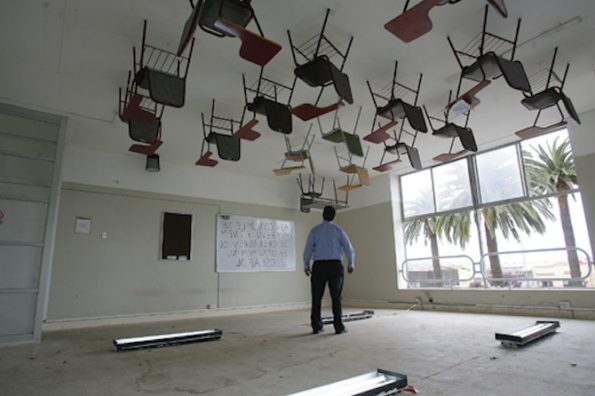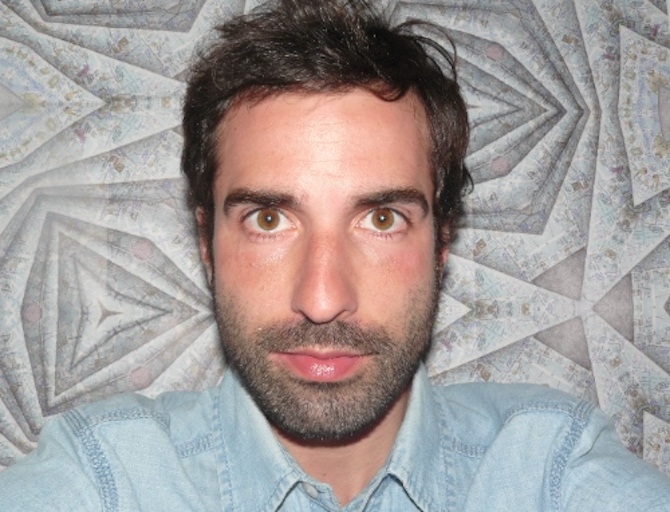Search
To search for an exact match, type the word or phrase you want in quotation marks.
A*DESK has been offering since 2002 contents about criticism and contemporary art. A*DESK has become consolidated thanks to all those who have believed in the project, all those who have followed us, debating, participating and collaborating. Many people have collaborated with A*DESK, and continue to do so. Their efforts, knowledge and belief in the project are what make it grow internationally. At A*DESK we have also generated work for over one hundred professionals in culture, from small collaborations with reviews and classes, to more prolonged and intense collaborations.
At A*DESK we believe in the need for free and universal access to culture and knowledge. We want to carry on being independent, remaining open to more ideas and opinions. If you believe in A*DESK, we need your backing to be able to continue. You can now participate in the project by supporting it. You can choose how much you want to contribute to the project.
You can decide how much you want to bring to the project.

“In a world which is really upside down, the true is a moment of the false” Guy Debord.
Chilean students have returned to the “paros” and “tomas” of universities, colleges and schools. That is to say, to strikes and occupations. They have returned to the mass “marches” that made them the focus of the media in 2011. There are no statistics for it, but Chileans are undoubtedly the most pissed off students in the world. Why?
20 January 2011. President Piñeira (MA and PhD. in Economics from Harvard University) presents the Law for Quality and Equality in Education. Basically, a pay rise for directors. Students watch the cost of fees and matriculation rise each year. To have university level studies in one of the countries with one of the greatest socio-economic inequalities means, for a middle class family, going into debt. Not to mention the lower classes or lower middle class. They erupt. The immense majority take to the streets, they organise themselves and a large part of the country expresses solidarity with them.
The roots of the problem are buried in the depths of the era of the dictatorship, above all with the “Organic Constitutional Law on Education”, passed by Pinochet a day before leaving power, that led to the growth of private universities like high rise mushrooms.
The source of these educational problems lies in the United States and their last presidents, both Bush (MA in Business Administration at Harvard) and Obama (Magna cum laude at Harvard), have deepened the elitisization of education. The model has been implemented in other places, such as in the Mexico of Felipe Calderón (MA in Public Administration at Harvard) and attempts are being made in others, like Spain (remember the Universities Organic Law applied in 2001 by José María Aznar, Doctor Honoris Causa of the International University of Florida). The mission of those in power is to reinforce the loop: degrees will become like aristocratic titles, handed down from (rich) father to son. It is a condemnation of the non-upper classes; who without education will never get out of the circle.
It’s June 2013. The students return to the streets. But the marches, “tomas” and stoppages have changed. There are no visible leaders and the students are less united. There is a reason for this mood, even if it is relative. The general elections are approaching and all the candidates are promising free education.
What does art do in this situation? A valuable book, “En Marcha” [1], has just been published, that analyses these proposals. The answer is not a lot. There are a few exceptions, like the initiatives of the students at the University of Chile, or the action “1.800 hours for Education”, that consisted in running for this length of time around the Palacio de la Moneda (1.800 million dollars are needed to finance education for one year).
The work “Sala Invertida” is for me the most representative. Students of the Catholic University in Valparaíso (Diego Bravo, Marcelo Arenas, Felipe Mayorga, Gabriel Holzapfel and Jaime Casas) turned one of their classrooms, visible from the street, upside down. They wrote Debord’s phrase on the blackboard and threw the Constitution of 1980 in the bin. The message is clear.
Investing in education can’t be understood as the money that a father invests so that his child studies and passes (“son, study as this is costing me a lot of money”). It’s unacceptable that the cost of education has hit the roof. It’s unacceptable that teaching is back to front. This is the inversion: it’s impossible for those who most need education in order to be able to escape their socio-economic situation to access it, while the red carpet is unfurled for those who need it least. And the problem of inverted education is that it can’t be reversed.

His intention is to continue to improve his writing of art criticism; everything else is enjoying and learning from contemporary proposals, establishing other strategies of relations, either as a contributor to magazines, editor of a review, curator or lecturer. As a backpacking art critic, he has shared moments with artists from Central America, Mexico and Chile. And the list will continue. Combating self-interested art, applauding interesting art.
"A desk is a dangerous place from which to watch the world" (John Le Carré)